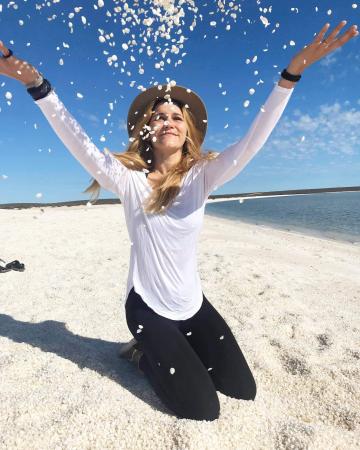
Diagnosis of type 1 diabetes
“It’s been such a long time, however I recall to be sitting in the waiting room of the pediatric section of the UZ Brussel. A nurse asked me to follow her for a quick test, where she poked my finger and I started crying because she surprised me. She wiped away my tears, looked at her monitor and told me that unfortunately I would have to get used to poking my fingers. Fairly enough, I have to say that I absolutely had no idea what was going on. I couldn’t comprehend the severity of the condition and what life changing events it would bring along. I remember at that exact moment, I was just relieved to stop being thirsty all the time as soon as they hospitalised me. This included having to live on the amenities because I had to urinate all the time, whilst having infections and so many other inconvenient physical issues.
Being bullied for this in primary school was rough, hence I was happy to have doctors tell me that it wasn’t my fault. I had a medical issue. I do remember that my family members were a lot more concerned and crying, while I was the one reassuring them it would all be okay, not realizing the roller-coaster I was about to experience. I was basically just a kid that had not a clue what she had just been told.”
How does type 1 diabetes effect your life?
“I’ve been a type one for approximately 21 years. Let’s say that the first 18 years were horrible. I spent off and on in the hospital, coped with severe mental issues and I was unable to have any control over my body. I was overweight, unstable, unhappy and dealt with anxiety. I felt lonely and not worthy.
At the age of 29 in 2018, I hit rock bottom. I lost my way. Being a person with type 1 diabetes, celiac disease and hypothyroidism was a burden. Work was stressful and I had long days, filled with sleepless nights. Over the years I had developed an eating disorder. I could eat myself to death. I locked myself in my head bubble and isolated myself from the world. I was in such a dark place that I thought I only had two options.
Either put myself 10 feet under the ground or find my joy of life again by doing what I always dreamt of doing: going to Australia before hitting 30, backpack and be free."
Going for the dream
"I left in October 2018 for two months and returned as a new person. My journey brought me amazing people, hearing their stories, new experiences and ways of living. I realized that I was actually a very outdoor person who enjoys nature, hiking and exercising. I recall to have lost around 12 kilo’s in two months being in Australia and returned to Belgium with a lower HbA1c. It took me 29 years to understand that I needed a happy & healthy mind in order to be able to deal with the struggles my body was giving me. I knew back then that I wanted to live somewhere where I could have a lifestyle that wouldn't compromise my mental health.
I met my partner in 2018, randomly, whom is now my husband. I returned to Australia in 2019 and started a new life. Not an easier one, because life is pretty harsh and more challenging here, but it suits me better. I have a very active life, professionally and privately. Since then I’ve been pleased to see that my HbA1c has been stable (6.3 mostly) but recently 5.9. I’ve lost approximately 30 kilo’s and haven’t had any issues with my eating disorder. I cook healthy, make my own dips, bread and vegan meat paddies (I changed my diet to plant-based end 2018). When I have a day off, I go exploring, go surfing, 4WD and further on. Being away from a dense society has helped me to take a step back, focus on what matters, what makes me happy and accept that there was only one way to go and that is forward. Learning to accept that you have a medical condition, invisible to the outside world, that very few understand, gave me more peaceful mind. As Australians would say it: Such is life, it is what it is.”
How do you look towards the future? In what extent can Hippo & Friends contribute even more?
“For the future, I’m taking it day by day. I’ve learned that planning too much ahead is a waste of time because everything changes so fast. I’m grateful that an organization such as Hippo & Friends does so much to highlight the condition. There is so little awareness and people still have such a wrong idea/concept about what diabetes is (too much sugar, not enough sugar, having a bad lifestyle). There is so much misinformation. I just wish people could have a better understanding on the impact the condition has on a person, let alone a child.
People can only relate and be aware of one’s condition, when they can see it (such as MS, cancer, vitiligo and other). Don’t get me wrong, every medical illness is awful, however some are getting a lot more attention and sponsoring/subsidizing. We deserve that too, because diabetes has an impact on every aspect of your life: physically, mentally, socially, professionally, romantically, financially and more. It’s a burden and I can only hope that governments will invest more. A healthy diabetic with access to devices, assistance and tools without jeopardizing their savings will cost governments less in the long run, because we will have a good management in place leading to a more prosperous future”
Julie
24/01/2022
